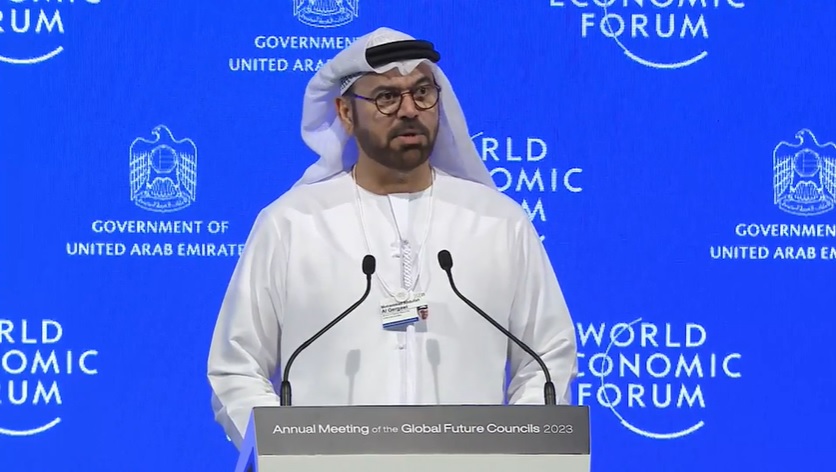Dubai, United Arab Emirates – Considering opposing views, exchanging ideas and developing pathways for collaboration are essential to improving lives and protecting the planet in an increasingly polarized and fragmented world. That was the key message of the opening sessions of the World Economic Forum’s Annual Meeting of the Global Future Councils 2023.
More than 450 experts from business, government, academia and civil society are gathering at the Madinat Jumeirah Convention Centre in Dubai through October 16-18 to exchange learnings, engage in creative brainstorming and generate insights to support future decision-making in addressing the world’s complex challenges.
In opening remarks, Mohammad Abdullah Al Gergawi, Minister of Cabinet Affairs, UAE, emphasized the importance of asking big questions to ensure a future that “features overarching equity, sustainability and readiness”.
“With every development, with every discovery and with every answer, we start to ask new questions to pursue our march of development,” he said. “The future of humanity continues to depend on our ability to ask new questions that light up our curiosity and drive us to reach new, convincing answers.”
The Annual Meeting of the Global Future Councils aims to advance inclusive, sustainable solutions through constructive dialogue that considers diverse viewpoints across industries and disciplines, said Mirek Dušek, Managing Director, World Economic Forum, during the opening remarks.
“Given the powerful tides of fragmentation and polarization sweeping societies, but also geopolitical and international relations, there is a premium on being able to make decisions in context and consider all relevant factors,” he said.
Drawing connections across agendas
Connecting the dots in areas such as security, the economy, the environment and global health offers the opportunity for “grand bargains”, said Sally Davies, Master, Trinity College, University of Cambridge, speaking in the opening plenary.
While there has been progress on development issues in recent decades, more recent shocks, including the COVID-19 pandemic, the energy crisis and geopolitical volatility, risk setting back progress on development issues, especially for those most vulnerable, said Masood Ahmed, President, Center for Global Development.
“There are still pockets of communities, countries, people, who are not participating in this success,” he said. “The big challenge for the future is to find ways to help them catch up.”
Melissa C. Lott, Director, Senior Research Scholar, Center on Global Energy Policy at Columbia University, called for making progress on the net-zero transition in an inclusive way that considered sustainable development issues. “The whole transition only happens at the speed of trust,” she explained. “Involving everyone in the stakeholder chain that needs to be there is vital.”
Stuart Russell, Professor of Computer Science, University of California, Berkeley, warned against the “solutionism” of relying on artificial intelligence to solve the world’s issues. He argued for building “AI systems that are safe by design” and pursuing “socio-technical embedding” – considering the social effects of advancements as well as the technological.
Global Future Councils
The World Economic Forum’s network of Global Future Councils is a multistakeholder, interdisciplinary insights network designed to address critical global challenges through transformative ideas. It consists of 30 councils made up of experts across business, government, academia and civil society, from more than 80 countries, who are nominated for two-year terms.
Annual Meeting of the Global Future Councils 2023
The Annual Meeting of the Global Future Councils is taking place 16-18 October in Dubai, United Arab Emirates. The meeting provides a platform for constructive dialogue, innovative solutions and frontier thinking on the world’s pressing challenges. Insights from the meeting will contribute to impact-focused Forum work throughout the year, including the World Economic Forum Annual Meeting in Davos.








